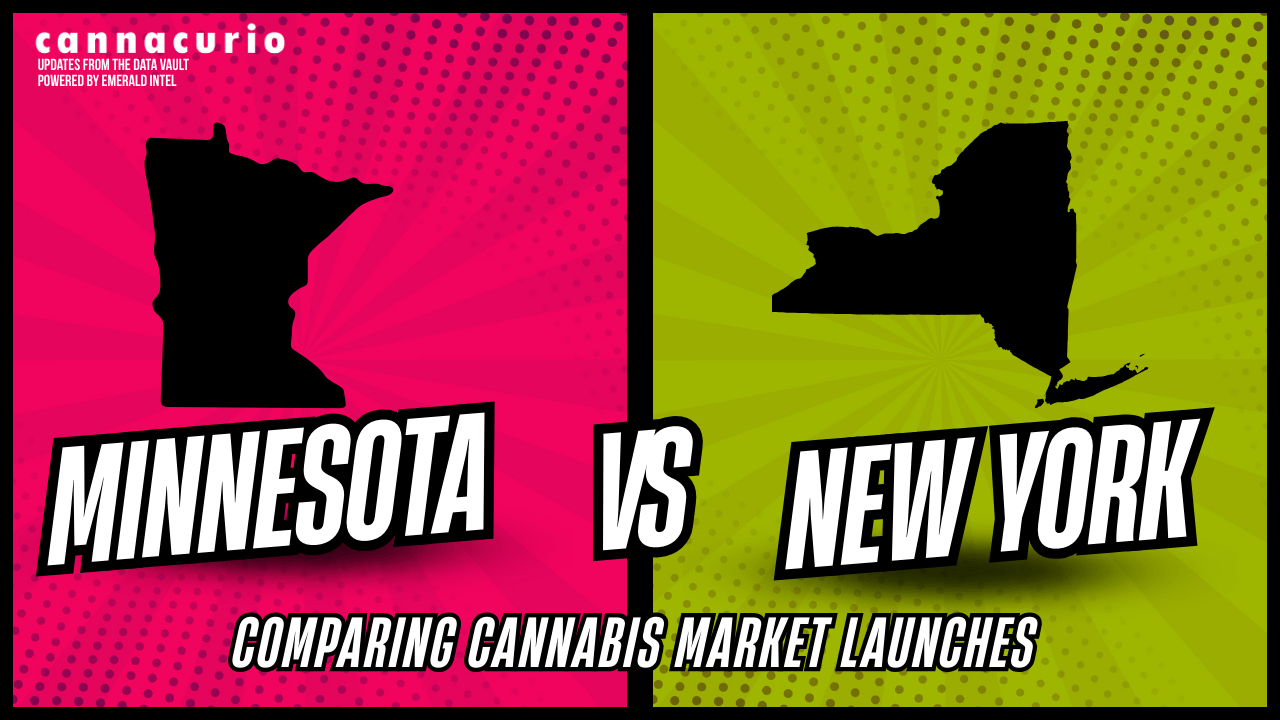
North Dakota Marijuana Licenses to Date - Here's What You Need to Know
In early 2017, North Dakota Governor Doug Burnum signed the revised North Dakota Compassionate Care Act into law. The act, which was originally voter-initiated, directs the North Dakota Department of Health (NDDoH) to establish a medical marijuana program. In order to fulfill its obligations, the NDDoH created a new Division of Medical Marijuana to oversee the program and begin drafting rules to be filed with the state’s Legislative Council.
By mid-2017, the state’s program took its first steps toward creating a fully licensed and regulated medical marijuana industry. To begin the licensing process, the Division requested that any entity interested in becoming a registered “compassion center” (cultivator/manufacturer, or dispensary) submit a letter of intent. Upon receipt, state officials planned to reply to each letter with a Request for Proposal (RFP) and further application directions.
At this point, applicants still interested in obtaining a license were expected to respond with a complete proposal and a $5,000 non-refundable fee. An Evaluation Committee would then score the proposals according to ND law (NDCC 19-24.1). The Committee would weigh factors such as the applicant-owner’s qualifications and character; suitability of physical facilities; day-to-day plan of operations; entity/financial structure; employment standards/proposed code of conduct; patient service plans, and environmental plans. If their proposal was approved, applicants were required to pay a $90,000 fee for a dispensary license, or a $110,000 fee for a cultivator-manufacturer license. Officials planned to license two cultivator-manufacturers and up to eight dispensaries.
At the end of the letter submission period, the Division reportedly received letters from 115 different entities. Shortly thereafter, the Division made a public RFP directed at marijuana seed-to-sale tracking system companies. In addition, similar to the steps taken in order to identify potential compassion centers, the Division requested that all entities interested in opening testing labs submit letters of intent. The deadlines to submit testing lab letters and tracking proposals were in August and early December of 2017, respectively.
The Division collected public comments on its proposed set of administrative rules at the end of 2017. Though it seemed as if everything was rolling along smoothly in December 2017, NDDoH officials stressed that they were still about a year away from having a fully operational program for patients. As 2017 came to a close, it was just a waiting game from here on out as North Dakota carefully charted its course to avoid the problems that have befallen many other states’ programs.
Six Months Later – June 2018 Update
North Dakota’s medical marijuana program, though seemingly not as robust as other states’ programs, continues to move along at a decent clip. However, this does not mean that the ride has been bump-free. Earlier this year, an interesting question was posed during the application period that may have had an effect on the program’s overall size.
That question was: Would the state’s anti-corporate farming laws apply to the medical marijuana program? The question carried some weight, as a fair number of large corporations hold or have applied for licenses in nearby states within the past year.
North Dakota’s anti-corporate farming laws can be traced to the Great Depression, when the state took steps to limit the number of large corporate farms making their homes there. The law was intended to protect the state’s family farming heritage, and it still stands fairly strong today, as even recent efforts to exempt certain industries were voted down.
State lawmakers declared earlier that there was no question whether anti-corporate farming laws affect the medical marijuana program, as it is clear that the law only applies to food production. However, there was enough uncertainty that officials requested that the state Attorney General provide a written opinion on the matter. At the time this request was made, the application period to cultivate and process marijuana (“manufacture”) was already underway and set to close by mid-April.
The state Attorney General eventually released an opinion that sided with other state lawmakers, generally agreeing that the medical marijuana program was not subject to the anti-corporate farm act. According to the Attorney General, the law does not preclude marijuana cultivation so long as the cultivation is not done on agricultural land.
The opinion was released in early April, two weeks before the application period closed on April 19, 2018. In total, 17 businesses applied for medical marijuana manufacturers’ licenses. Though some local family farms have self-disclosed the fact that they are currently seeking a license, the state did not disclose the names of any applicants, citing state privacy laws.
There is some speculation as to whether the uncertainty of the situation had an effect on the number of applicants, perhaps scaring away other potential multi-state license holders. The low number of applicants could also simply be a result of businesses sensing that the potential market size is too small, given the state’s sparse population.
Ultimately, 2 of the 17 applicants were selected to manufacture medical marijuana. The NDDoH announced that Pure Dakota, LLC and Grassroots would receive licenses. Pure Dakota is owned by a local rancher from Flasher, ND, while Grassroots is a multi-state license holder based in Illinois. Because the state does not reveal any applicants, it’s simply a waiting game to see if the announced dispensaries are also a mix of local and out-of-state business owners.
Originally published 12/20/17. Updated 6/1/18.
Need more insights?



.png)